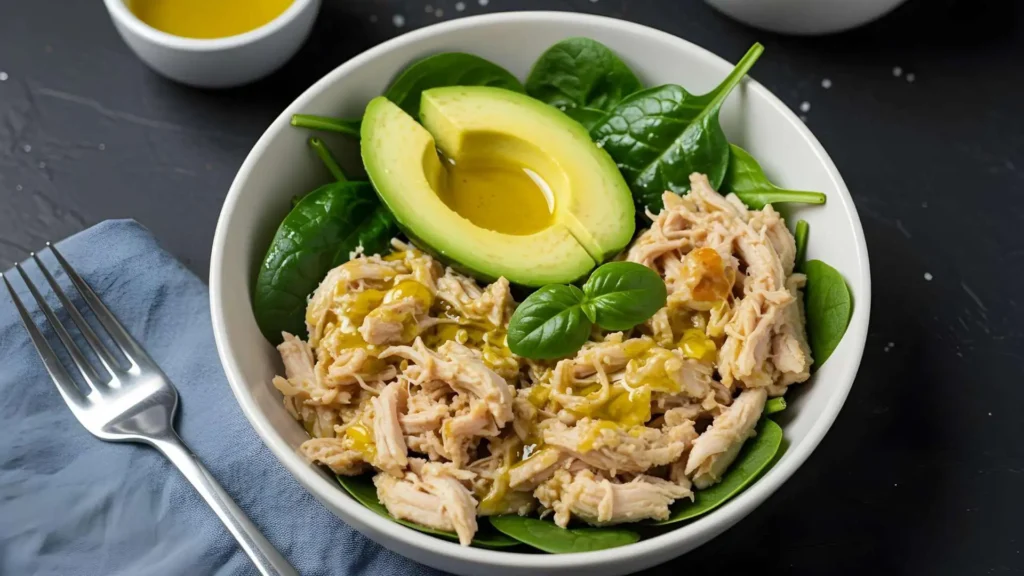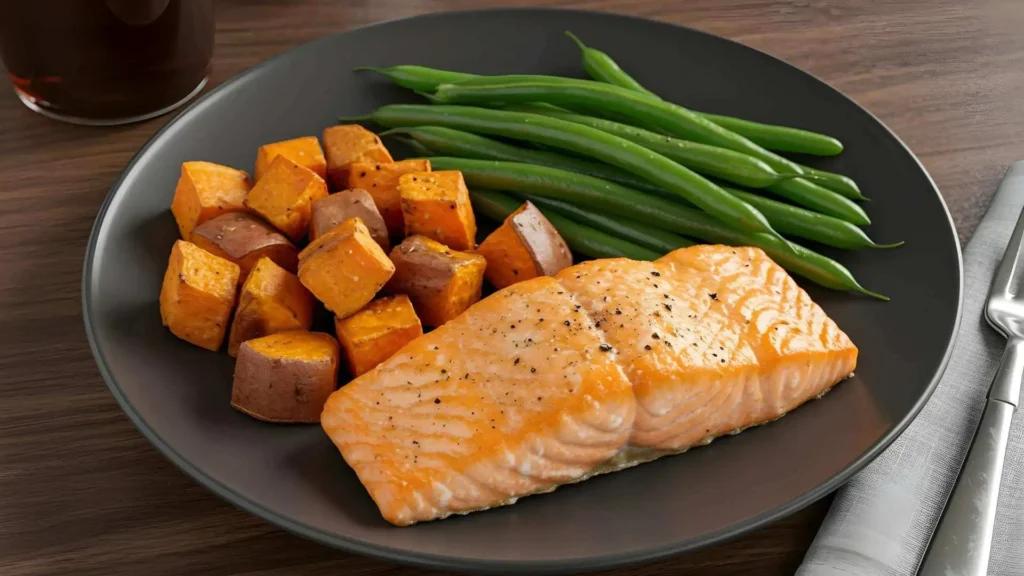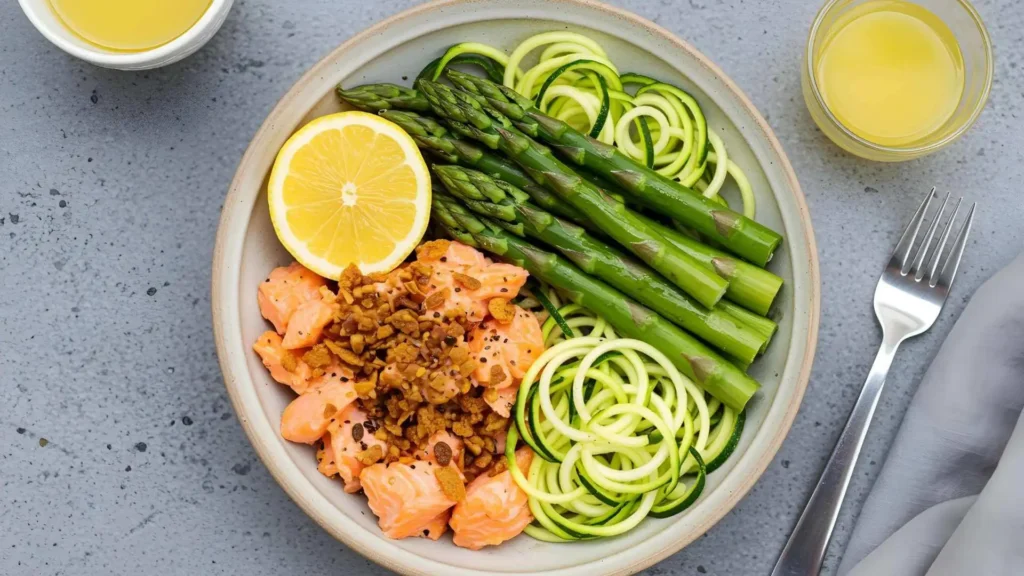AIP Food List and Ingredients
The following ingredients are AIP-approved and can be used to expand your AIP-compliant breakfast recipes.
Protein
- Grass-fed beef
- Pasture-raised poultry
- Wild-caught fish (salmon, sardines, cod)
- Organ meats (liver, heart, kidney)
- Shellfish (shrimp, scallops, mussels)
- Gelatin/collagen powder
Vegetables
- Leafy greens (kale, spinach, chard)
- Cruciferous vegetables (broccoli, cauliflower, brussels sprouts)
- Zucchini, Carrots, Sweet potatoes
- Pumpkins, Beets
- Squash (butternut, acorn, spaghetti)
- Onions
- Mushrooms
Fruits
- Bananas, Apples, Pears, Papaya, Pineapple
- Berries (blueberries, raspberries, blackberries)
- Mango
Healthy Fats
- Avocado and avocado oil
- Coconut (milk, cream, flakes, oil)
- Olive oil
- Duck fat
Herbs & Spices
- Turmeric
- Ginger
- Basil
- Oregano
- Thyme
- Rosemary
- Cilantro
- Cinnamon
- Mint
AIP-Friendly Flours
- Cassava flour
- Tigernut flour
- Coconut flour
- Arrowroot starch
- Plantain flour
Non-Dairy Alternatives
- Coconut milk
- Coconut yogurt
Natural Sweeteners (in moderation)
- Honey
- Maple syrup
- Coconut nectar
These ingredients are generally considered to be AIP-compliant. However, tolerance to individual ingredients may vary from person to person.
Ready-to-Eat AIP Food List
AIP Sauces
- Coconut Aminos (substitute for soy sauce)
- AIP Pesto (basil + olive oil, no nuts/cheese)
- AIP BBQ Sauce (nightshade-free)
- Fish Sauce (pure, no sugar)
- AIP Ranch Dressing
- Olive Tapenade (just olives + herbs)
Fermented & Probiotic Foods (Global Cuisine)
- Kimchi (without chili)
- Sauerkraut
- Kombucha
- Coconut Yogurt
- Miso (soy-free, like chickpea miso)
- Fermented Cassava (Garri)
AIP Protein
- Biltong
- Beef Jerky (AIP-friendly)
- Canned Sardines
- Canned Mackerel
- Smoked Salmon
- Pasture-Raised Pâté
Foods to Avoid on AIP Diet
During the elimination phase, you should avoid foods that are considered inflammatory, contain anti-nutrients, or may disrupt gut health. These include:
Nightshade Vegetables
- Tomatoes
- Potatoes
- Eggplant
- Peppers (bell peppers, chili peppers)
- Goji berries
- Paprika
Grains and Pseudo-grains
- Wheat
- Corn
- Rice
- Oats
- Barley
- Rye
- Quinoa
- Amaranth
- Buckwheat
Legumes
- Beans (kidney beans, black beans, lentils, chickpeas)
- Peas (green peas, snow peas)
- Peanut products
Dairy
- Milk
- Cheese
- Yogurt
- Butter (if not grass-fed)
- Cream
Processed Foods
Avoid all processed foods, especially those that contain artificial ingredients or additives:
- Packaged snacks
- Sugary foods
- Processed meats (hot dogs, deli meats)
- Foods with added sugars or refined sweeteners (corn syrup, cane sugar, etc.)
Refined Vegetable Oils
These oils are high in omega-6 fatty acids, which can promote inflammation:
- Canola oil
- Soybean oil
- Sunflower oil
- Cottonseed oil
- Safflower oil
Nuts and Seeds
Nuts and seeds contain lectins and phytic acid, which may cause issues for some people with autoimmune conditions:
- Almonds
- Walnuts
- Pistachios
- Cashews
- Sunflower seeds
- Pumpkin seeds
Alcohol
Alcohol can irritate the gut and disrupt gut microbiota, leading to inflammation:
- Beer
- Wine
- Liquor
Caffeine
Caffeine can be inflammatory for some people, so it’s recommended to avoid or limit:
- Coffee
- Tea (except for herbal teas like ginger or chamomile)
- Energy drinks



